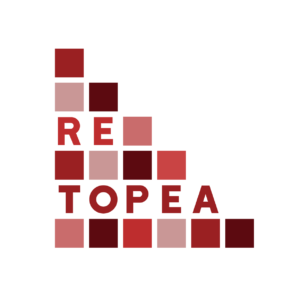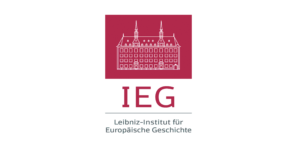Henning Jürgens: RESILIENCE Would Make Our Work Easier, More Structured, Simply Better
We met Henning P. Jürgens from the Leibniz Institute of European History (IEG) to talk about the EU project “RETOPEA – Religious Toleration and Peace”, about the challenges of working in distributed international teams in times of the corona pandemic and about the benefits of RESILIENCE for research projects in Religious Studies.
RETOPEA Team at the IEG: Ilenia Laudito, Christophe Schellekens, Irene Dingel, Henning P. Jürgens
What is RETOPEA about? Who is involved and who is the target audience?
RETOPEA is an EU-funded research project that brings together more than 30 scholars from eight European countries, from England to Macedonia, from Finland to Spain. Its goal is to address the issue of religious diversity in Europe: In a new approach it will provide teenagers with innovative tools allowing them to engage with the topic religious cohabitation in a more nuanced, empathic way. The project combines research on historical peace treaties and settlements of religious conflict with a study on contemporary representations of religious cohabitation in culture and media. Its research demonstrates how religious conflicts and tensions have been accommodated and solved in different religious traditions over time. Investigation into contemporary representations reveals how such initiatives are used, misinterpreted or ignored in different types of culture and media today. Based on the results of two years of research, RETOPEA in its second phase now develops innovative educational tools and evidence-based policy recommendations. By producing so-called ‘docu-tubes’, short documentary online movies, on their own, teenagers will be encouraged to actively engage with different ways of understanding religious cohabitation. RETOPEA has built an educational package to support students in creating their docutubes. More than 400 ‘clippings’, information units from the research projects, are available as source material in nine different languages. A training course will provide professional educators with information and training about religious diversity and peace-making in an accessible and attractive way. It will use the “Badged Open Course” format – a free online format that provides a certificate on completion. The experiences with students and the research results will offer the basis of policy recommendations to schools, educational authorities, religious leaders and (regional, national and European) policymakers.
What are the challenges of a research project with many different international partners – especially in times of a global pandemic?
Already under normal conditions, working together in a team as big and diverse as the RETOPEA group is a huge challenge. You have to overcome technical problems, agree on the way to structure the work, stay in permanent contact while doing the research, and take into account differing scientific cultures. All this gets even more complicated under the current conditions and makes stable structures and regular contact even more necessary. It was helpful for our team that we had met several times before. So we knew that we can rely on each other and could develop routines for local research groups independently. The biggest challenge remains to reach out to our target groups, teenagers and teachers, since they are suffering from the lockdown even more than scholars at their desks.
What could be the benefits of a research infrastructure for Religious Studies like RESILIENCE for projects like RETOPEA?
An infrastructure for Religious Studies like RESILIENCE would have been a tremendously helpful tool for setting up and running our project. It would allow us to organize remote work and to collect source material more easily. It could provide information about legal questions, it could bring partners into contact with the leading experts all over Europe and could facilitate structured access to already existing research results. Finally, it would help us to promote the results of RETOPEA and to address possible users and societal stakeholders. It is not hard to guess – RESILIENCE would make our work easier, more structured, simply better.
– Henning Jürgens, member of the academic staff at the IEG Department of Religious History, and RETOPEA Work Package 2 leader (Research on Historical Peace Settlements)
Thank you very much for this interview, Henning!

